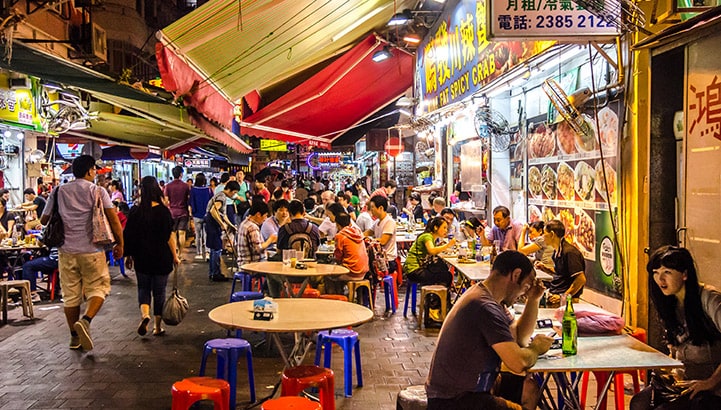
China is no stranger to food scandals. Indeed as each one comes and goes, the severity of the problem seems to deepen as quickly as confidence among the public erodes.
The fact that these stories reach global media is an increasing source of embarrassment to the Chinese government and the food industry as a whole, but what is being done to find a solution to the problem?
In fact, the answer to that is quite a lot.
A new generation of farming
Food safety in China is changing and, like most things in the world’s fastest growing economy, it’s changing quickly. A rapidly growing movement driven by new generations of farmers, suppliers, online and offline retailers and concerned entrepreneurs is committed to using the horror stories as a catalyst for change.
American-born Chinese businessman Steve Liang founded one such company in 2009, Fields China, in a bid to drive awareness of food quality and safety. At that time a host of food safety scandals had rocked the country, culminating in the hospitalisation of tens of thousands of infants who had come into contact with tainted milk formula. For this reason Liang said he felt compelled to act.
“As a father, I was naturally concerned about what my son was eating,” he says. “I began realising there was a gap in the market, a broken connection. I uncovered all these amazing places to get safe, reliable and delicious produce but no one was connecting the farmers to the customers.
“I knew then what I had to do but above all I had to do it fairly, ethically and tolerating absolutely no corruption.”
From the top down
In this sense Liang was perhaps slightly ahead of the curve with his concept. It’s no secret that the Chinese government has been shrouded in corruption controversy for decades, a problem that was highlighted by new President Xi Jinping upon his inauguration in 2013 as the biggest threat to China’s progression.
Since then, the government crackdown has shown that no person nor entity, regardless of stature, is untouchable, most notably with the arrest of former Politburo Standing Committee member Zhou Yongkang and the investigation into OSI group and the expired meat scandal that engulfed fast-food giant McDonald’s this summer.
Getting the house in order
But while stories such as these are damaging to the reputation of the Western companies involved, it’s actually the domestic market that is applying the most pressure to the food industry, seemingly seizing on the government initiative.
As Harvard graduate and Fields chairman William Chen puts it; “It’s a very exciting time to be part of a very exciting business. On one hand, many international brands are trying to develop in the Chinese market but there’s an especially booming demand for safe food from Chinese consumers.
“The unfortunate food scandals that have hit the country for many years now have contributed to raise awareness on these subjects. It’s one of the government’s top priorities already.”
Spread the word
Fields is not the only company to make a business out of supplying safe and high quality food to the Chinese market. Thanks to global powerhouses such as Alibaba and Amazon, China recently became the world’s largest online retail market, with over 302 million online transactions taking place in 2013, totaling more than 1.85 trillion yuan (£185 billion). And while the country has seen a huge increase in offline health-food restaurants and retailers, this sector continues to expand online, with companies often choosing to focus on one specific aspect of the market.
Kate & Kimi was started in Shanghai by two concerned parents looking to increase the quality of what their families were consuming. Although the eponymous mothers have since left China, the company continues to focus on organic vegetables, for the high-end expat market in particular.
Epermarket, another Shanghai-based online retailer, has expanded its product range to cover more than just groceries and focuses on a broader high quality of lifestyle, offering home appliances and office equipment in addition to foodstuffs.
The future is bright
This increasing awareness of food safety in China looks set only to grow. “Although we are competitors, we are all striving towards the same goal; the raising of the food industry standard in China as a whole,” says Fields marketing and sales director Laure Perriot. “It’s about ensuring a better level of quality for future generations and regardless of personal opinion or belief, I think that is something we can all agree on.”
Not so long ago, as China stormed its way through unprecedented levels of industrial revolution, the thought of eating organic vegetables grown to western standards in China would have been unthinkable. But the strides forward the food industry has taken in just the last few years is testament to the bright future of the nation’s food safety and provides a glimpse of things to come.
So while the rumours that tend to drift to the West choose to focus on the negatives of food safety in China, an increase in customer demands coupled with an increasingly proactive government is aiming to make that trend a thing of the past.
Timothy Neesham is a Shanghai-based writer specialising in the food and beverage industry
Related reading: Impacts of Chinese safety scandal have been far reaching
